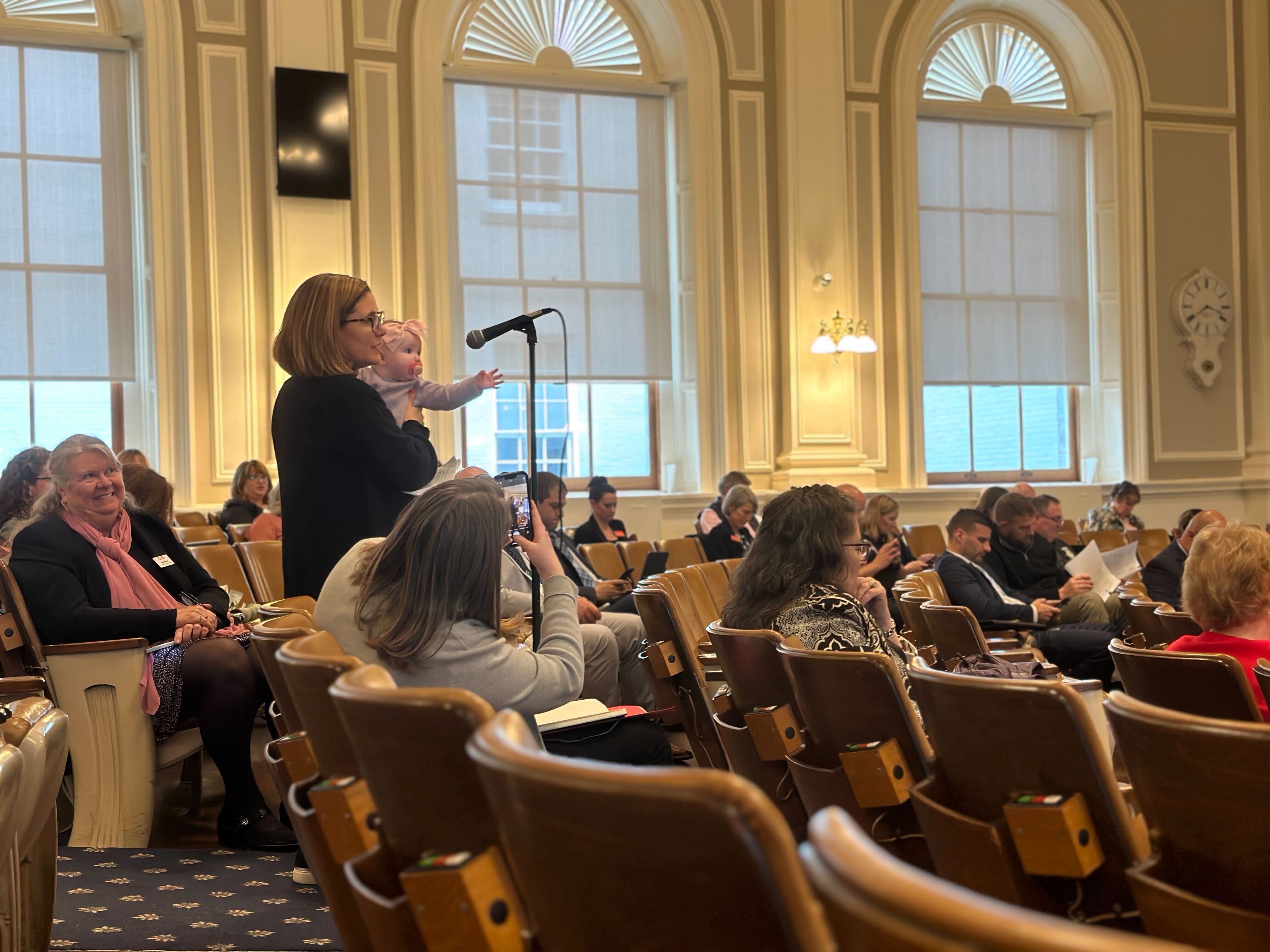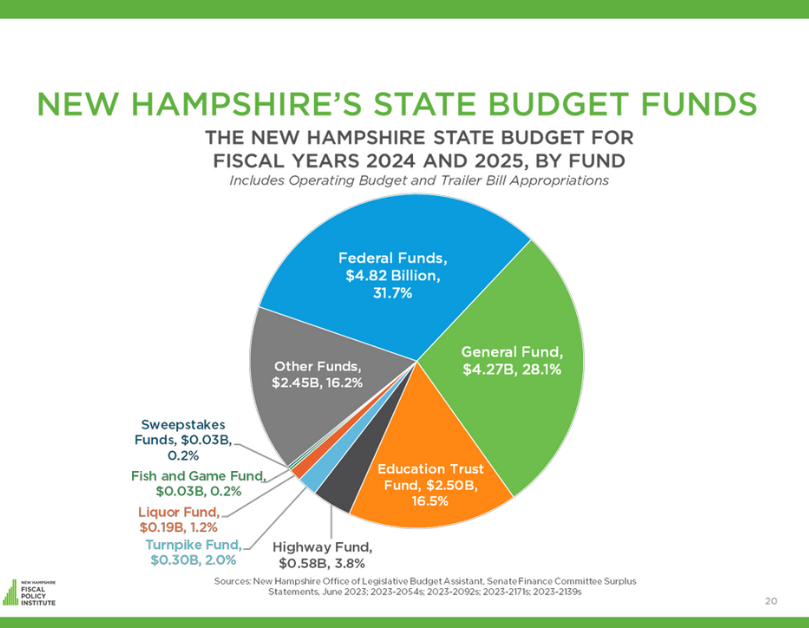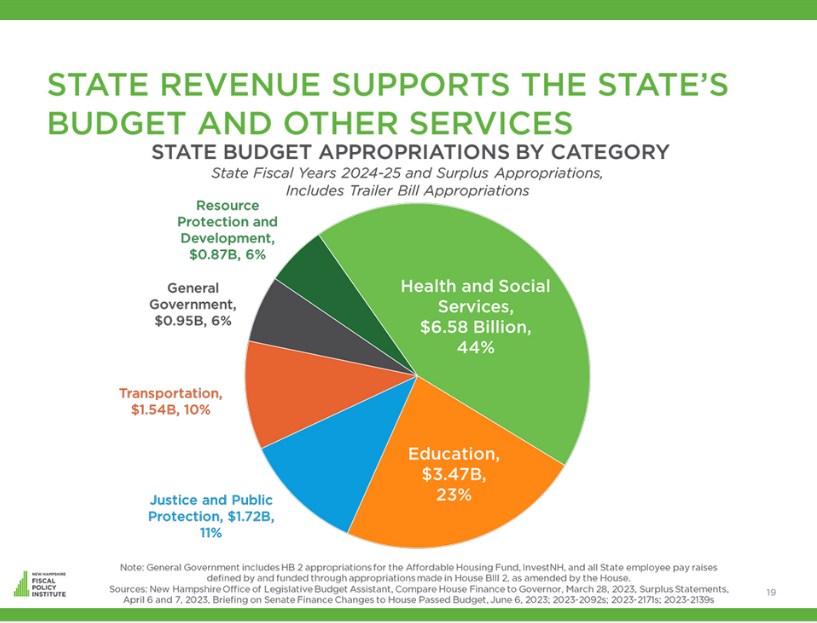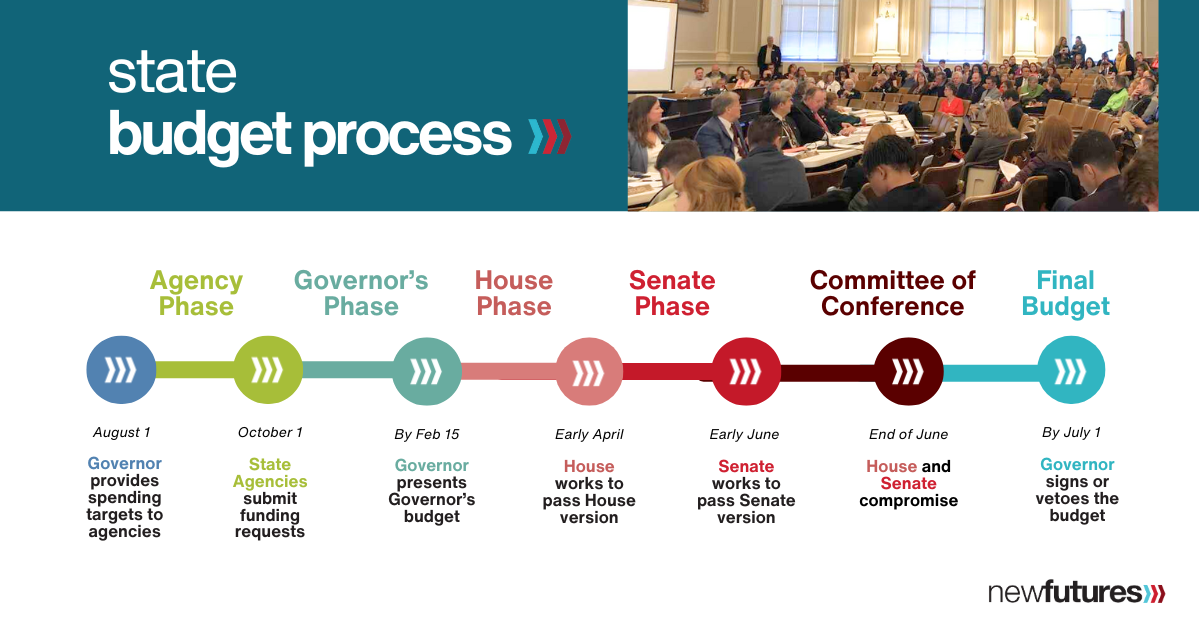New Year, New Legislature: What you Need to Know About the NH State Legislative Process
Now that state elections are over, the real work begins.
As the new year approaches, New Hampshire will welcome not only a fresh calendar year but also new leadership in the State House. With a new governor and state legislators, Granite Staters have a powerful opportunity to influence the policies that affect their lives and communities. Lawmakers are there to serve you, and they take the time to listen to the perspectives of New Hampshire residents. So how can you make your voice heard?
Here's what you need to know about the legislative process in New Hampshire, and how you can get involved to make the change you want in our state.
Jump to: About the NH Legislature | All About Advocacy | NH State Budget Process | How a Bill Becomes a Law
About the New Hampshire Legislature
The New Hampshire Legislature, known as the General Court, is a unique part of the state's political landscape. Comprised of two chambers, the Senate and the House of Representatives, the General Court is made up of 24 Senators and 400 Representatives. With a total of 424 legislators, New Hampshire is the third largest English-speaking legislative body in the world!
New Hampshire Legislators
Unlike many other state legislators, New Hampshire legislators are volunteers, earning $100/year plus gas money. With no assigned research staff, they often rely on constituents, like you, and advocacy organizations to educate them on the more than 1,000 bills introduced every year. This provides an opportunity for individuals and groups to influence policy by educating lawmakers and advocating for issues they care about.
In New Hampshire, the ratio of constituents to legislators is relatively small. Representatives each have an average of 3,000 constituents, which means you often have closer access to them. This means your voice can have a significant impact on policy decisions at the State House!
The Legislative Session
Each year, The New Hampshire Legislature meets in session from January to June. It operates on a two-year cycle called a biennium. The first year is a budget year, where the state budget is determined for the next two years (click here to jump to the budget process below!). This is a critical year for shaping the state's priorities and funding.
Both state legislators and the governor are elected every two years. New Hampshire and Vermont are the only two states that elect the governor for two-year terms – the other 48 states elect governors for four years!
All About Advocacy in New Hampshire
With a newly constituted legislature, your voice is more important than ever. Advocating for change is a powerful way to ensure lawmakers hear your perspective on issues you care about. Whether you’re passionate about access to health care, early childhood issues, or substance use prevention and treatment, advocacy is essential to shaping policy decisions and creating lasting change in New Hampshire.
What is Advocacy?
Advocacy is action in support of a cause. It's about using your voice and taking action to make a difference in your community. Whether you advocate for a specific bill, issue, or community need, advocacy empowers you to engage with lawmakers to create solutions for your community. There are many ways to advocate for issues you care about. You can sign in remotely to a public hearing, submit a letter to the editor, or spread the word on social media.
The Power of Your Story
One of the most powerful tools in advocacy is your personal story. Stories humanize policy – they help people understand the real-life impact policy will have. When you share your story, you put a face to the issue, which can motivate people to take action and work toward change. Interested in using your story to make change in New Hampshire? Consider sharing your story with New Futures!
Ways to Advocate
Getting involved is easy. You can advocate for change in as little as two minutes! Here are a few ways to advocate:
- Participate in a Public Hearing: Every bill in New Hampshire gets a public hearing. The public hearing is your opportunity to have direct input on the future of a bill by voicing your input. You can sign in remotely or submit written or oral testimony.
- Contact your Lawmakers: Lawmakers need to hear from you so they can understand the issues facing their constituents. Calling or emailing your lawmaker is an effective way to advocate for a specific bill or issue.
- Write an Opinion Piece: Writing a Letter-to-the-Editor (LTE) or Opinion Editorial (Op-Ed) is a way to advocate to both legislators and the public. Legislators often read local newspapers to understand the concerns of their constituents.
- Spread the Word on Social Media: Talking about issues on social media helps build awareness and spread information quickly. Consider tagging lawmakers and local organizations working on the issue in your posts. Use #NHPolitics and tag @NewFuturesNH!
Learn more about ways to advocate and put your advocacy skills to use by becoming a New Futures advocate!
Stay Informed
If you're interested in advocacy and want to stay up-to-date on the issues that matter most to you, sign up for New Futures emails! You'll receive updates on important legislation and opportunities to take action on issues affecting the health and well-being of Granite Staters.
The New Hampshire State Budget Process
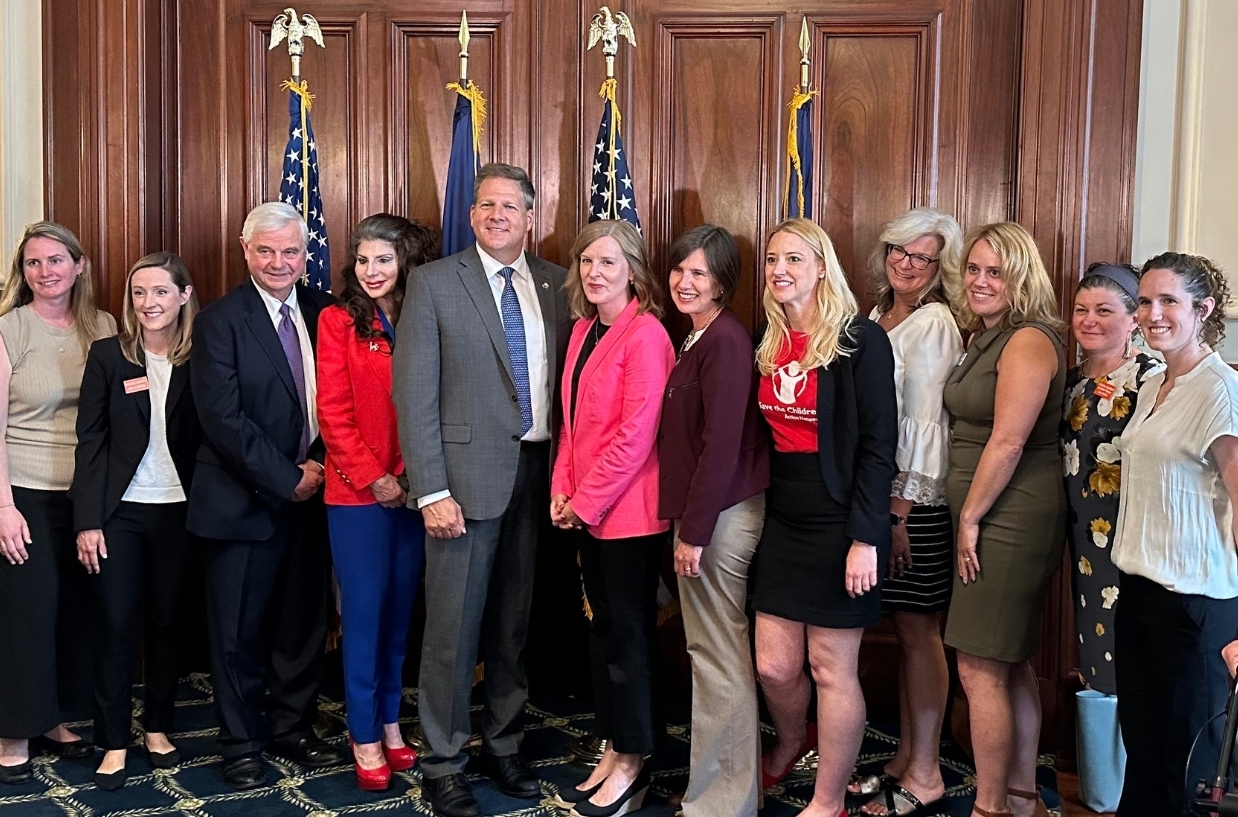
The New Hampshire State Budget is a detailed plan that outlines how the state will spend its money over a two-year period. This two-year budgeting cycle is known as the Biennial Budget.
Every two years, the governor and the state legislature work together to create and balance the state’s budget. The goal is to determine where funding will go, covering areas like health care, education, and public safety. The budget process involves balancing the state’s revenue—the money it brings in—against its expenditures—how the state spends that money. This balancing act ensures that the state remains financially sustainable while still supporting essential public services and programs.
Funding Sources vs. Funding Expenditures
One important aspect of the budgeting process is that some sources of revenue must be used for specific purposes. For example, money from the Alcohol Fund must be directed to substance use prevention, treatment, and recovery programs. These funds have a designated purpose, meaning they cannot be spent on other areas. On the other hand, some funds are unrestricted and can be used more flexibly to cover a broader range of needs.
The state's spending is divided into six main areas: Health and Social Services, Education, Justice and Public Protection, Transportation, General Government, and Resource Protection and Development. Among these, the top two expenditures in New Hampshire are health and social services and education.
Budget Funds
Source: NHFPI Presentation, page 20 |
Budget Spending
Source: NHFPI Presentation, page 19 |
The Budget Timeline
The first year of the biennium is a budget year, and the budget process runs from approximately August 1 to July 1. During this time, the state sets its priorities, aligns funding with those priorities, and works toward approving the final budget for the next two years.
|
Timeline Overview:
|
Going Deeper into the Phases
Phase 1: The Agency Phase - August to October
During the Agency Phase, state agencies determine their budget needs to continue operations and submit a budget request to the governor. Examples of state agencies include New Hampshire Department of Education and New Hampshire Health and Human Services.
Phase 2: The Governor's Phase - October to February
The governor creates a budget proposal, known as the Governor’s Recommended Budget, based on the agency requests and projected revenue. The governor must present this budget to the legislature by February 15.
Phase 3: The House Phase - March to Early April
Once the governor’s budget is sent to the House, it is divided into two parts: House Bill 1 (HB 1) and House Bill 2 (HB 2). HB 1 includes money items, outlining the specific amounts of money the state will spend on particular programs and services. HB 2 includes policy language and law changes needed to support the spending in HB 1.
The budget starts in the House Finance Committee, which splits into three divisions to work separately on different parts of the budget. The House Finance Committee makes a recommendation to the full House, which then reviews, amends, and votes on the House version of the budget. The House must decide on their final version of the budget by April 6.
Phase 4: The Senate Phase - Late April to May
The House’s version of the budget then goes to the Senate Finance Committee, where it begins a similar process. Unlike in the House, the Senate Finance Committee doesn’t split into divisions. The committee makes a recommendation to the full Senate, which then reviews, amends, and votes on the Senate version of the budget.
Phase 5: Committee of Conference - June
If the Senate made changes to the House’s version of the budget, the changes must be approved by the House. The House and Senate typically form a budget committee of conference to work through the differences. When an agreement is reached, the committee of conference’s version of the budget goes back to both the full House and full Senate for final approvals by both bodies.
Phase 6: The Governor's Review and Final Budget - End of June
After the final version of the state budget passes the House and Senate, it goes to the governor’s desk. The governor must sign it into law, let it become law without a signature, or veto it by July 1. If the governor vetoes the budget, the legislature may override the veto with a two-thirds majority vote in both the House and the Senate.
The operating State Budget goes into effect on July 1, playing a vital role in shaping the financial future of the state. Advocacy during this process is important to ensure that the budget serves the needs of New Hampshire residents.
How a Bill Becomes a Law
A bill takes many important steps throughout the legislative process in its journey to becoming a law. Each stop allows for review, debate, and public input to ensure that the final law reflects the needs of Granite Staters. Watch the video below to see the path a bill takes to become a law in New Hampshire.
Thank you for learning all about the legislative process in New Hampshire! A new year means a new chance to build the New Hampshire we want – and it all starts with you. Your influence is just beginning.

.png)
